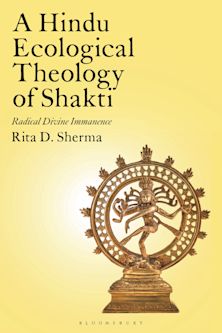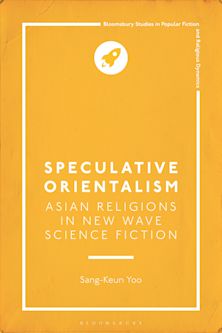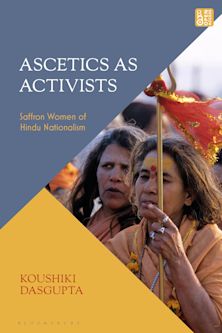A Sakta Method for Comparative Theology
Upside Down, Inside Out
A Sakta Method for Comparative Theology
Upside Down, Inside Out
This product is usually dispatched within 1 week
- Delivery and returns info
-
Free US delivery on orders $35 or over
Description
A Sakta Method for Comparative Theology: Upside-Down, Inside-Out offers a Sakta thealogy of religions and a Sakta anti-method, method, and a-method for comparative theology. For Saktas, the thread of religious diversity is part of the rich tapestry of cosmological, topographical, environmental, and bio-diversity, which is the Goddess’ collective (sama??i) and individuated (vya??i) forms. Sakta religious diversity is "complex, layered, and paradoxical, allowing ontological similarities, ontological differences, and irreducibility." A Sakta thealogy of religious diversity transcends humans and the borders of religion, politics, society, and speciesism.
New Books Network podcast on New Books in Indian Religions, a conversation between Raj Balkaran and author Pravina Rodrigues: https://newbooksnetwork.com/a-sakta-method-for-comparative-theology
Table of Contents
Personal Prelude
Introduction
Chapter One: The Case of the Missing Interlocutors: Methodological Issues in Hindu–Christian Studies
Chapter Two: One, None, Many: A Sakta Ontology
Chapter Three: A Sakta Thealogy of Religious Diversity
Chapter Four: Upside-Down, Inside-Out: A Sakta Method for Comparative Theology
Conclusion
Bibliography
About the Author
Product details
| Published | Dec 08 2023 |
|---|---|
| Format | Hardback |
| Edition | 1st |
| Extent | 180 |
| ISBN | 9781666905052 |
| Imprint | Lexington Books |
| Illustrations | 2 tables |
| Dimensions | 9 x 6 inches |
| Series | Explorations in Indic Traditions: Theological, Ethical, and Philosophical |
| Publisher | Bloomsbury Publishing |
Reviews

ONLINE RESOURCES
Bloomsbury Collections
This book is available on Bloomsbury Collections where your library has access.


































